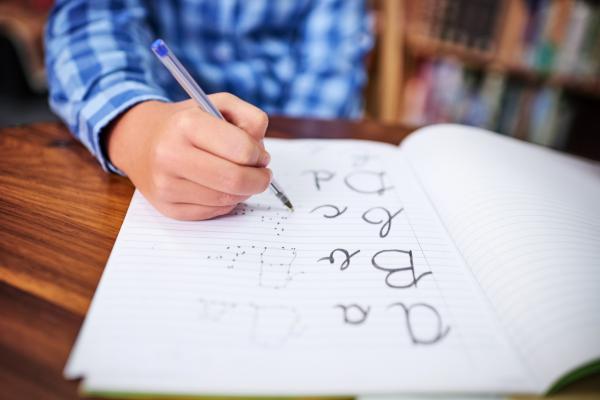Find out if you could be a foster carer
In a few simple questions, you’ll know if you’re suitable to apply to become a foster carer.
Although one in ten of us has some form of dyslexia, it’s often misunderstood and can be difficult to diagnose. Because of this, some foster carers can find it challenging to support young people with the condition, or to even spot the signs.
Dyslexia is a learning difficulty that doesn’t affect intelligence, but it is defined as a disability under the Equality Act 2010. If dyslexic people don’t get the help they need in childhood, they can find it difficult to fulfil their potential in later life. That’s why it’s so important that the right help and support are available to them at an early age.
To help foster carers spot the signs of dyslexia and get the right help for their child, we’ve put together an introductory guide. We’ve included the signs and symptoms, FAQs, and information on the support and resources available.
Use the links below to skip ahead or read on for the complete guide.
Quick Links:

Dyslexia can be really difficult to spot, especially in younger children. Many people make the mistake of ignoring the early signs, putting them down to a child’s age and intelligence rather than seeing it as a bigger problem.
But the earlier dyslexia is diagnosed, the less it will affect a child’s learning and development – so it’s important that foster carers know what to look for.
Here are some of the tell-tale signs of dyslexia in children, as well as young people who may be struggling with their schoolwork.
The symptoms of dyslexia are different for everyone and range from mild to severe. Not only that, but children with dyslexia often excel in other areas, like art and creative subjects – which can actually make the problem more difficult to spot.

If you think your child could have dyslexia, you may have a lot of questions about the condition and how you can help. Here are some common questions about dyslexia to get you started.
You can’t take them to your GP because the NHS doesn’t fund dyslexia assessments. Instead, they’ll need to see an independent professional.
Some schools offer dyslexia screening, especially if you’ve raised concerns about your child. But, this is normally just a basic screening test, so you’ll need to take them to see a specialist for a full diagnosis.
If you spot any of the signs of dyslexia, talk to your child’s social worker. They’ll put you in touch with dyslexia screening services run by the local authority. You can also find your nearest Local Dyslexia Association (LDA) on the British Dyslexia Association’s LDA Directory.
The majority of schools offer some form of learning support for dyslexic children, so talk to them to make sure your child is getting the help they need.
If your child is diagnosed with dyslexia and you agree with the local authority that it would be best if they changed school, most regions offer specialist learning centres for dyslexic children. We’d recommend CReSTeD (Council for the Registration of Schools Teaching Dyslexic Pupils) for finding the best schools with dyslexia support in your area.

There are lots of things you can do to help your child at home. From general activities like nursery rhymes and finger play to poetry and mime – there are loads of activities and tools out there that can make a big difference to how your child copes with their dyslexia.
We’d highly recommend the British Dyslexia Association’s Early Help, Better Future resource for fun and useful ways to help your child at home.
Struggling with reading and writing isn’t the only sign that could show that your child is dyslexic; there are a few non-language symptoms to be aware of, too. We’ve listed these by school age group below:
Pre-school:
Primary school:
Secondary school:

There are many places where you can get help and support for your child online. Below, we’ve listed some of the best places for dyslexia support on the web.
The UK’s leading dyslexia society, offering lots of training and support for parents and carers with dyslexic children, as well as a place for dyslexic people to talk with others in the community.
Official site for the Council for the Registration of Schools Teaching Dyslexic Pupils. This is the place to find schools in your area which offer support for dyslexic children. It can also advise on how to approach schools to get additional support for your foster child.
A great, no-nonsense resource for foster carers looking to learn more about dyslexia. With videos, guides and personal stories from people with dyslexia, this site can help you build on your knowledge and come up with ways to really help your child.
Stocking products designed to aid people with dyslexia, The Dyslexia Shop can help children fulfil their potential and live life to the full. From stationery and books to games and electronics, there are lots of useful tools and products that can help with your child’s development.
The NHS offers lots of practical and useful information for diagnosing and managing a child’s dyslexia, and how to get help. If you need the facts on dyslexia, this is the place.
At NFA, we offer round-the-clock support and ongoing training to all our foster carers, so they can provide vulnerable children with the very best support. To find out more about fostering with us, visit the homepage or call us now on 0330 022 9135.